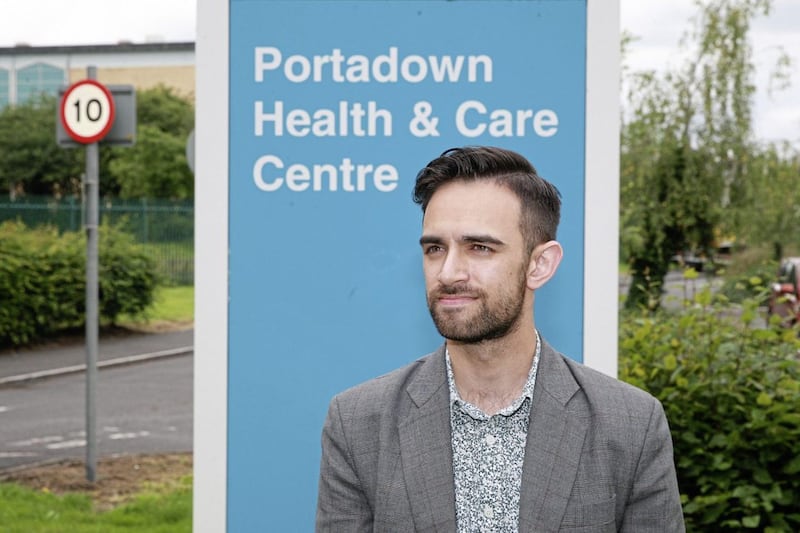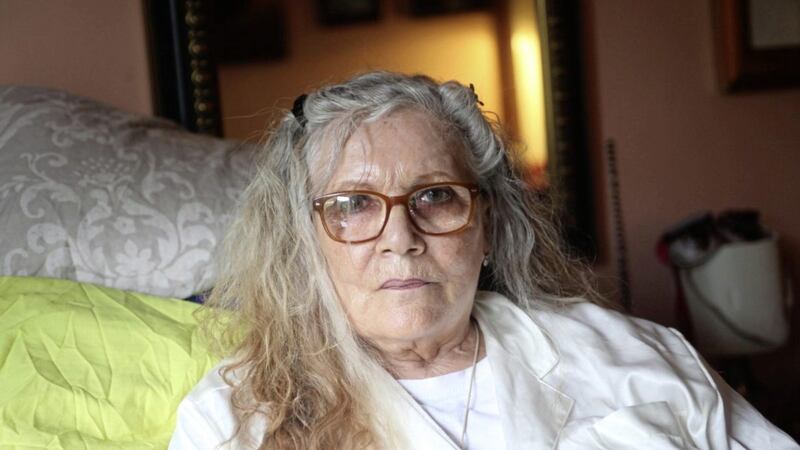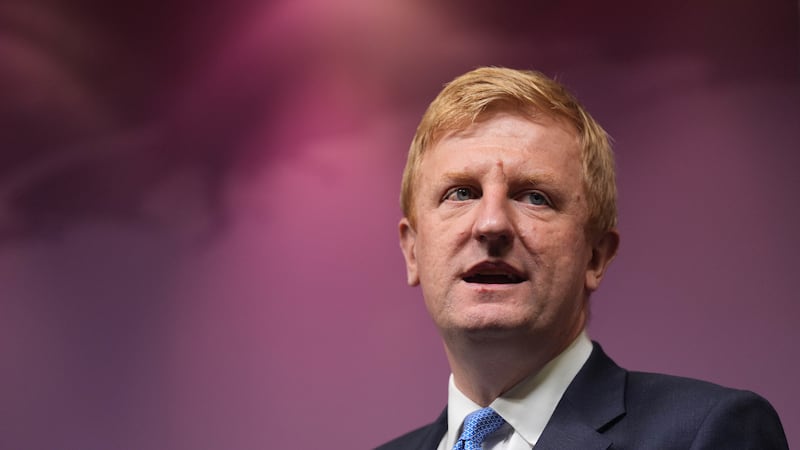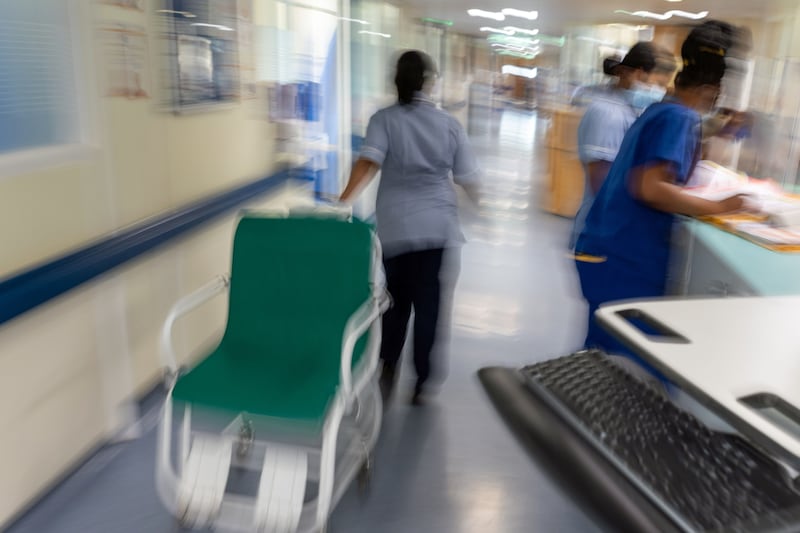A NURSING and GP workforce crisis, threatened £70 million cuts and landmark changes to abortion services have been just some of the controversies that dominated a year in health where there was no minister.
With the collapse of power-sharing at Stormont in January 2017, civil servants took over the reins of power at Castle buildings and budgetary shortages loomed large against a backdrop of spiralling waiting lists and severe staff shortages.
Such was the scale of hospital delays that doctors told patients they could face up to five years for hip and knee replacments - resulting in one Belfast pensioner booking cut-price surgery in Lithuania after 'maxing out' three credit cards.
A&E pressures also reached shocking levels in January when an elderly woman lay on a trolley for almost two days in Antrim Area hospital, in what was believed to be the worst wait in the entire NHS.
With more than 1,400 nursing shortages and the enforcement of 'vacancy controls' - staff who left were not replaced - health trusts relied on costly agency staff to keep hospital service afloat, with the Belfast trust paying private recruitment firms £1 million a month for nurses.
It also emerged that record numbers of foreign nurses were failing a controversial English language exam which was slated due to its inrelevant essay questions, such as the importance of road tolls.
By the middle of January, the north's biggest doctors' union warned that frustration among its GPs at funding shortages and workload could see some quit the health service - with scores signing "undated" letters of resignation. The move never came to pass but some rural surgeries were forced to close due to lack of cover.

Difficulties in registering with a GP practice were revealed when an Australian man living in Northern Ireland was forced to go home to get an appointment because he couldn't get on the books of a Portadown surgery.
Assembly elections were called for March but just two days before going to the polls health service workers reacted with anger to an email from the most powerful administrator at the Department of Health, Richard Pengelly, warning them not to post "overtly political" tweets.
The move backfired and led to accusations of censorship and conflict of interests, as Mr Pengelly is married to the DUP's Emma Pengelly, who was running for South Belfast MLA seat.
Meanwhile, a spate of drug-related deaths in Belfast linked to 'street blues' in April exposed the scale of abuse of prescription drugs as well as the lack of addiction services.
Attention switched back to the hospital sector a month later when a controversial decision to downgrade the A&E at Daisy Hill hospital in Newry sparked mass public rallies.
'People power' was attributed to an eleventh-hour reprieve - but the fact a Westminster election was around the corner was a more likely reason for the climb-down.
Financial sweeteners were offered to entice Belfast doctors to work overnight in Daisy Hill, including a £1,800 payment for a night's 'on-call' work with the base at Newry's Canal Court hotel - but no-one took it.
Just days after the Tory-DUP deal and promise of a £1 billion deal - £50 million was earmarked for health - new legislation was suddenly passed in Westminster following a Labour-led call for Northern Ireland women to have access to NHS abortions in England.
The historic move meant women from the north could travel to England and receive free terminations for the first time.They previously paid up to £1,400 for the procedure.
Labour MP Stella Creasey, who was instrumental in getting the legislation introduced, required a police escort from a public event in Belfast two months later - such was the wrath of anti-abortion campaigners.
A legal challenge on the north's strict abortion laws by the Human Rights Commission took place in London, with the body calling for abortion to be legalised in cases of rape, incest, and serious foetal abnormality. The outcome is expected next year.
In the Republic, it was announced that an abortion referendum will take place in 2018.
With no return of power-sharing by August, Department of Health civil servants ordered a shock £70 million-worth of funding cuts across the five health trusts to balance the books.
Devastating cuts to home help packages, fertility services and hospital wards were presented to the public in a series of heated meetings - with the public "asked" where the knife should fall.
By October, a £40 million bailout by other Stormont departments was announced and trade unions rounded on health chiefs who they accused of performing a "stunt" which they said created huge anxiety for patients and staff alike.
A u-turn was also performed by the Department following severe criticism of its £1m cut to nurse training places in what was an already depleted workforce.
In a highly unusual intervention, former Sinn Féin health minister Michelle O'Neill demanded the funding was re-instated.
Nurses shortages again reared their head in September with the Irish News revealing a campaign to recruit overseas nurses to the north's health service has led to just 12 jobs being filled - at a cost to the taxpayer of almost £570,000.
By late November, the health watchdog formally notified the Department about its concerns over the nursing shortage in the hospital and community sector, describing it as a "worrying picture".
Winter pressures and shortages in care home packages also began to hit hard - and it emerged that terminally ill patients were being placed on waiting lists for hospice beds.
The year ended with the publication of a long-awaited report on the need to overhaul social care in the north, which included a controversial proposal to carry out means testing on vulnerable people requiring care packages in their home.
A delayed one-per-cent pay rise for the north's 55,000 health care workers was finally announced by the Department of Health in mid-December - but was rebuked by the Royal College of Nursing unions who described the year-long stalling of the payment as "shameful".
Analysis: Bleak NHS forecast for 2018 at odds with vision set by Bengoa
THE optimism that greeted the release of the ambitious Bengoa reforms in the autumn of 2016 was a rare thing in the Northern Ireland health service - as it was pretty much universal.
But within four months, the collapse of power-sharing ensured that the radical changes required to fix a haemorrhaging service remained firmly on the back-burner.
With no minister in post, and unprecedented waiting list pressures, the year ended with health chiefs appealing to the public for help to "free up beds" and even take relatives "into their own homes for a few days" following their discharge from hospital.
And while the Department of Health approved an additional £7m to help alleviate some of the winter pressures and GPs received an extra £2m to put on extra surgeries until next March, the outlook for both the hospital and community setting is looking increasingly bleak.
Health and education may be protected from the next round of budget cuts by Stormont civil servants, but the introduction of prescription charges and NHS staff car parking charges are on the table.
For patients waiting on major life-enhancing surgery such as hip or knee replacements, the likelihood of a five-year delay is high.
The majority of urgent 'red flag' patients, including suspected cancer cases, are thankfully being referred to consultants in a timely manner but overstretched GPs are privately speaking of their "fear" of missing something - and not making that referral.
A&E breaches continue and will no doubt peak between next January and February as they did this year.
For a growing number of patients, the private route is becoming the preferred option where they will pay £150 to see a consultant and get fast-tracked for hospital treatment. The alternative is to wait three years to see the same consultant on the NHS.
Meanwhile, the continuing staff shortages and severe budget constraints will continue to heap pressure on the north's healthcare workers.This month's introduction of a delayed one-per-cent pay rise did nothing to raise morale - coming almost a year too late.
The £50 million promised as part of the £1 billion DUP/Tory deal needs to be distributed urgently to make some dent in the appalling waiting lists.
However, the need for political stability - be it in the form of direct rule of restoration of Stormont - is at its most pressing as the current system is dysfunctional.
A health service that is asking the public to take ill people into their homes to free up hospital beds is one that is on its knees and requires an urgent overhaul.








